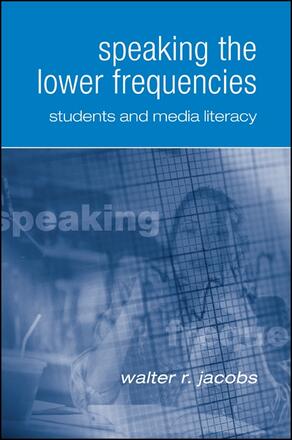
Speaking the Lower Frequencies
Students and Media Literacy
Alternative formats available from:
Shows how using texts from popular culture in the classroom can help young people to become critical consumers of media without losing the pleasure they derive from it.
Description
Speaking the Lower Frequencies demonstrates how students can be critical consumers of media while retaining the pleasure they derive from it. In Walter R. Jacobs's classes on media and society, students use the instructor's experiences as a model for investigating their own histories. By creating new social contexts and meanings, the students learn to "speak the lower frequencies. " Jacobs looks at the students' reception and critique of pop culture texts like the movie I Like It Like That and the television show The X-Files to provide evidence for the effects of alternative pedagogy on critical literacy. He shows that when students are encouraged to be more than just passive receptors of the media they learn to develop active, critical voices that they use both inside and outside the classroom. Jacobs also explains how students can become more aware and active in attempts to create democratic possibilities for themselves and others.
Walter R. Jacobs is Assistant Professor of Social Sciences at the University of Minnesota and the coeditor (with Jeffrey R. Di Leo) of If Classrooms Matter: Progressive Visions of Educational Environments.